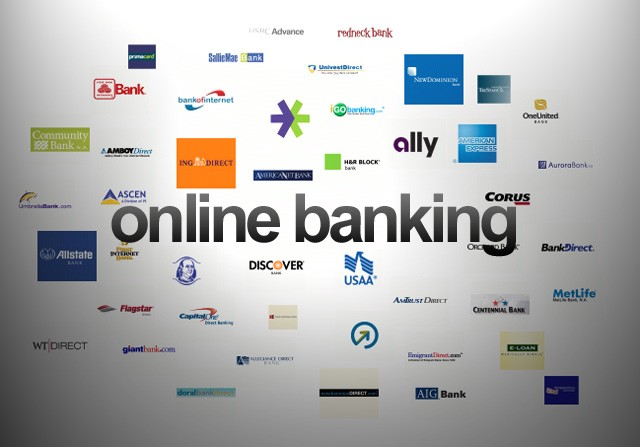Bridging the Gap: Why Internet Access Matters
Access to the internet has become a fundamental necessity in today’s fast-paced digital world. From education to employment, from health care to commerce, the ability to connect online influences nearly every aspect of modern life. One area where this impact is increasingly felt is in the realm of financial inclusion. Internet access has opened doors for millions of underserved individuals and communities, offering them tools to participate in the formal economy and make empowered financial decisions.
In many parts of the world, a significant portion of the population remains unbanked or underbanked, meaning they lack access to traditional financial services such as checking accounts, savings options, credit facilities, and more. This gap has far-reaching implications. Without financial tools, individuals are more vulnerable to economic shocks, have limited ability to save, and face barriers in accessing education and health services. However, the growth of internet infrastructure is helping to close this gap. More people than ever before can now access online platforms that offer banking services, even in remote or previously underserved areas.
Online banking plays a pivotal role in this digital transformation. When individuals are connected to the internet, they can manage their finances with greater ease, transparency, and autonomy. Online banking platforms provide round-the-clock access to essential financial services, eliminating the need to travel to a physical bank branch. For those who may work irregular hours, live in rural regions, or face mobility challenges, this convenience can make all the difference.
How Online Banking is Redefining Financial Access
Online banking is not merely a convenience; it is a game-changer in the quest for financial equity. Through smartphones and computers, users can open accounts, transfer money, pay bills, apply for loans, and invest savings, often without needing to step foot inside a bank. These capabilities are especially valuable for those who have been historically excluded from the traditional banking system due to lack of documentation, low income, or geographical isolation.
The emergence of digital-only banks and fintech startups has accelerated this trend. These platforms operate exclusively online and often feature user-friendly interfaces that cater to people new to digital finance. With low or no fees, reduced paperwork, and fast processing times, they make financial services more accessible than ever before.
Importantly, online banking also introduces financial literacy tools. Many platforms provide budgeting features, financial education modules, and real-time insights into spending patterns. This empowers users to make informed decisions and develop healthier financial habits. As individuals gain more control over their money, they are better positioned to build wealth, avoid debt traps, and plan for the future.
The Role of Smartphones and Mobile Technology
The proliferation of smartphones has been a major catalyst in expanding access to online banking. Mobile technology allows people to bank on the go, anytime and anywhere. In many developing regions, smartphones are more prevalent than computers, making mobile banking apps the most practical solution for financial inclusion.
Mobile banking apps have become increasingly sophisticated, offering robust features such as biometric security, voice recognition, and instant notifications. Users can check their balances, deposit checks using a camera, or receive alerts about account activity. These features enhance user experience and instill greater confidence in the safety and reliability of digital banking.
Furthermore, mobile banking aligns well with the informal economy. Small business owners, street vendors, and gig workers can use mobile apps to receive payments, track income, and manage expenses without the need for complex systems or accounting tools. This integration supports entrepreneurship and helps foster local economic development.
Overcoming Barriers to Access
Despite the promise of online banking, several challenges remain. One of the most significant barriers is digital literacy. Many individuals, especially older adults and those with limited education, may find it difficult to navigate online platforms or understand the terminology used. To address this, initiatives are being launched to teach digital skills in schools, community centers, and workplaces.
Another barrier is the cost of devices and internet access. While smartphone prices have decreased and mobile data plans have become more affordable, these expenses can still be prohibitive for some households. Subsidies, public Wi-Fi networks, and community technology hubs are some of the solutions being implemented to bridge this digital divide.
Cybersecurity is also a concern. As more people engage with online banking, the risk of fraud and identity theft increases. Financial institutions are investing heavily in security technologies, including two-factor authentication, encryption, and artificial intelligence to detect suspicious activity. Users are also being educated on how to protect themselves online, which is essential for building trust in digital systems.
The Societal Impact of Financial Inclusion
When more people are financially included, the benefits extend beyond individual households. Economies become more robust, communities more resilient, and governments better equipped to manage social programs. Financial inclusion through online banking enables more people to save, invest, and contribute to economic growth.
Women, in particular, stand to gain significantly from online banking. In many cultures, women face restrictions on mobility or are excluded from formal financial systems. Online banking gives them direct control over their money, enabling greater autonomy and improving household financial outcomes. Empowering women financially has been shown to positively impact children’s education, health, and overall family well-being.
Youth also benefit. With access to digital financial tools, young people can start saving early, learn responsible money management, and explore opportunities such as online education or entrepreneurship. These skills and experiences prepare them to thrive in a competitive global economy.
Moreover, online banking supports government initiatives such as direct benefit transfers, pensions, and subsidies. By digitizing these processes, corruption is reduced and efficiency is improved. Funds reach the intended recipients quickly and transparently, strengthening the social safety net.
Innovation and the Future of Online Banking
The future of online banking is bright, driven by rapid innovation and an increasing demand for accessible, user-friendly financial services. Artificial intelligence, machine learning, and blockchain technologies are being integrated into digital banking platforms, enhancing security, personalization, and transaction speed.
AI-powered chatbots are already helping users manage accounts, answer questions, and even provide financial advice. Predictive analytics can suggest savings goals or alert users to upcoming bills based on past behavior. These innovations make banking more proactive and responsive to individual needs.
Blockchain, while still emerging in mainstream banking, holds promise for improving transparency and reducing transaction costs. It can facilitate cross-border transfers, digital identity verification, and smart contracts, all of which can make financial systems more inclusive and efficient.
Another exciting development is the rise of embedded finance. This concept involves integrating financial services into non-financial platforms such as e-commerce websites, social media, and ride-sharing apps. Users can access banking features without needing to switch apps or visit a bank’s website, streamlining the user experience and increasing adoption.
Building a More Inclusive Future
To fully realize the potential of online banking, a collaborative approach is needed. Governments, private companies, non-profits, and educational institutions must work together to expand internet infrastructure, improve digital literacy, and design inclusive financial products.
Policies that support competition in the fintech sector can drive innovation and reduce costs for consumers. Regulations must also evolve to ensure that digital financial services remain safe, transparent, and equitable. Consumer protections, data privacy, and ethical AI use are all critical considerations in this new digital frontier.
Community engagement is equally important. Solutions must be tailored to local needs and contexts. Engaging users in the design of financial tools ensures that platforms are intuitive and relevant. Feedback loops can help developers continuously improve services and address pain points.
Online banking has the potential to level the financial playing field. By harnessing the power of the internet and digital technology, we can create a world where everyone, regardless of background or location, has the opportunity to build financial security and achieve their goals.
Conclusion: The Power of Connection
The transformative power of internet access and online banking cannot be overstated. Together, they are reshaping how individuals interact with money, participate in the economy, and pursue their dreams. For the underserved and unbanked, these tools offer a pathway to financial empowerment, independence, and opportunity.
As we continue to innovate and expand digital infrastructure, we must keep inclusivity at the forefront. Every person deserves the chance to thrive financially, and online banking is a key piece of that puzzle. With thoughtful investment, collaboration, and a commitment to equity, we can ensure that the benefits of digital finance reach everyone—unlocking potential, strengthening communities, and building a better future for all.
Online banking is not just a service; it is a catalyst for change. And in a world that is increasingly connected, that change begins with access.

